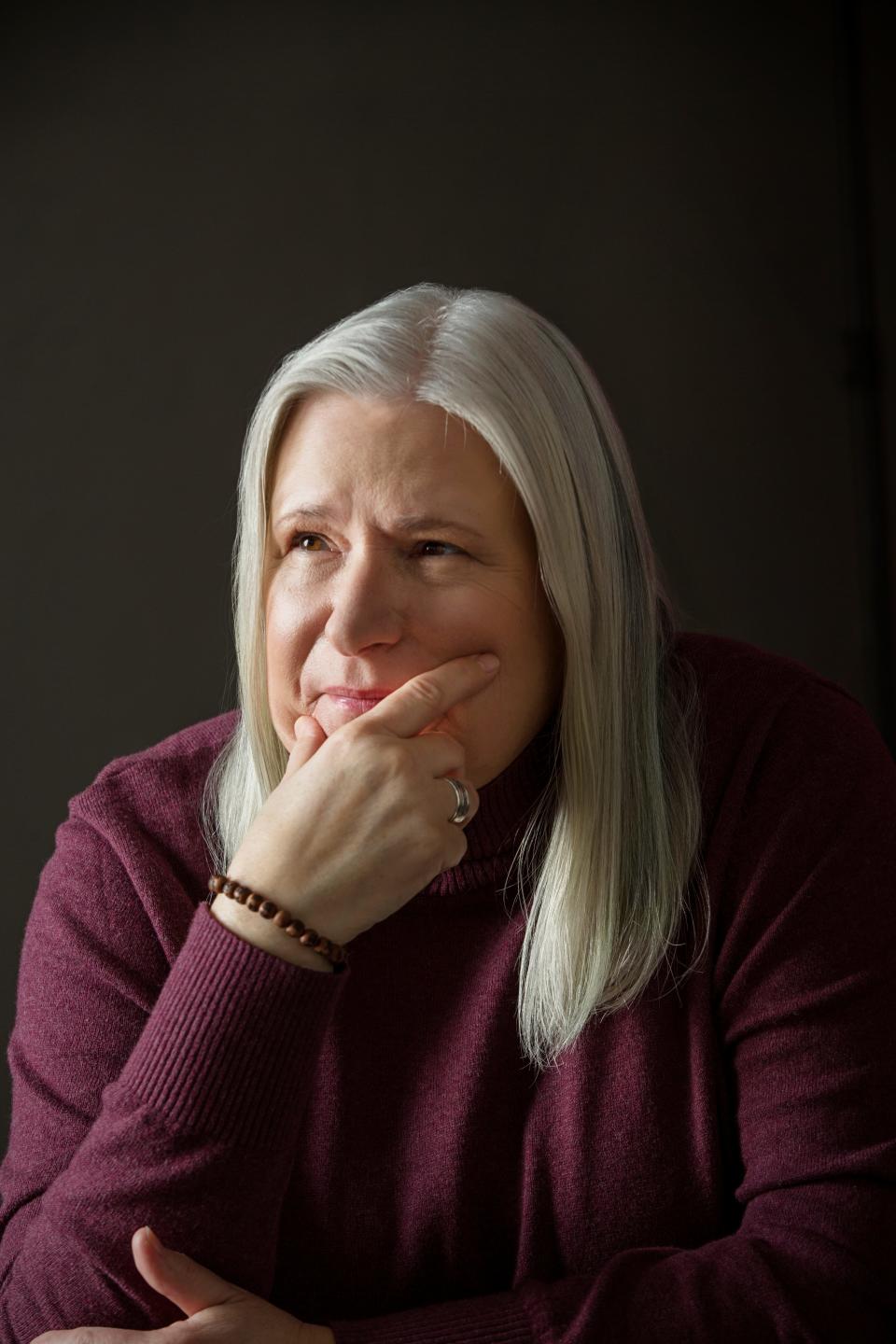Nancy Snow: We can find ways to help those who suffer, who are at risk
In April 2022, a 21-year-old unhoused woman was walking across a bridge spanning the Kaw River in Kansas. As she passed a man, he picked her up and tried to throw her off the bridge. Kicking and screaming, the woman broke free. The man, who had a violent encounter with two others shortly before the incident, was soon apprehended by police. May 26, 2023, was his sentencing date. His attorney argued for a 68-month sentence. The prosecutor for the state of Kansas argued for an aggregated 77-month sentence. The judge opted for an intermediate: He was sentenced to 72 months in prison, with 36 months of supervised probation to follow. He must register as an offender for 15 years.
The young woman, whom I have come to know through my advocacy efforts, attended the sentencing hearing and submitted a victim impact statement, which was read to the court by the state’s attorney. Her statement was short and to the point. Her primary concern was not only with her own life, but with that of her two children and her unborn son, with whom she was pregnant at the time of the attack. They occupied her thoughts, she said, as she looked at the water below.
More: Treat one another with civility and compassion no matter income, mental health status
Shortly after the attack, she had contractions — too early for that stage of her pregnancy — and was taken to a hospital. She found it difficult to move. Fortunately, her son, Nathan, was born without complications. She also suffered from nightmares, cannot cross the bridge alone and is apprehensive of big men.
She did not have to attend the hearing, nor submit an impact statement. She chose to do so. I was privileged to be there to support her. I believe the power of her words increased the sentence from 68 months to 72. Adding to the horror of the incident is the randomness of the attack. She did not know her assailant — she was simply walking on a pedestrian walkway. The man had a history of misdemeanors and a low-level felony, including domestic violence, as well as mental health issues. One might say, as a sarcastic understatement, that he was “having a bad day.” His act made her day infinitely worse, with significant impact on her life. He could have ended not one life that day, but two.
More: Death in a tent camp: 'God was with us in that darkness'
This young woman is tough and is a survivor. As she was growing up, her father was dysfunctional and violent. Despite the multiple traumas she has suffered, she wants to go to college and has career plans.
When we learn of incidents like this, we can shake our heads in disbelief and get on with our lives. Or, we can become involved. We can find ways to help those who suffer, who are at risk, who cannot fully contribute. Incivility is the tip of a much bigger iceberg of violence, trauma and suffering that is destroying the fabric of our society. There are no easy answers. Ways forward will be discovered only through collaboration — by many people coming together to improve the lot of the most vulnerable among us. As we engage in this work, frustrations will abound. Let’s do our best, as we move forward together, to cultivate kindness.

Nancy E. Snow is a professor of philosophy at the University of Kansas. She formerly was a philosophy professor at the University of Oklahoma and director of the Institute for the Study of Human Flourishing.
This article originally appeared on Oklahoman: Guest: Incivility is the tip of a bigger iceberg of violence, trauma

